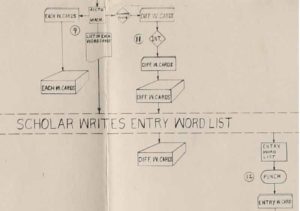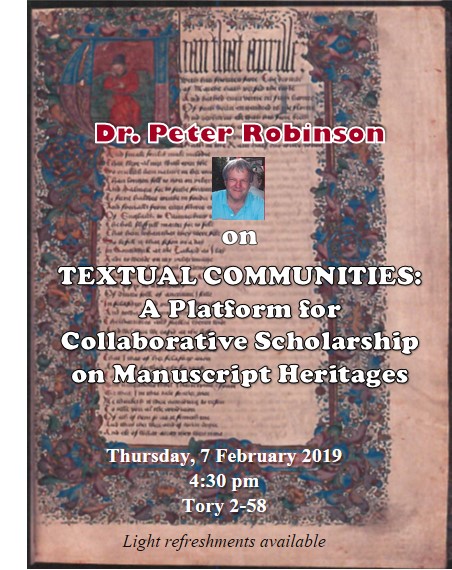The Journal of the AIUCD, Umanista Digitale has just published a paper I wrote with Marco Passarotti on The Index Thomisticus as a Big Data Project. This actually started for me as a blog post, The Index Thomisticus as Project. Marco has added a section on Busa’s views about developing corpora.
Category: Archives
JSTOR Text Analyzer
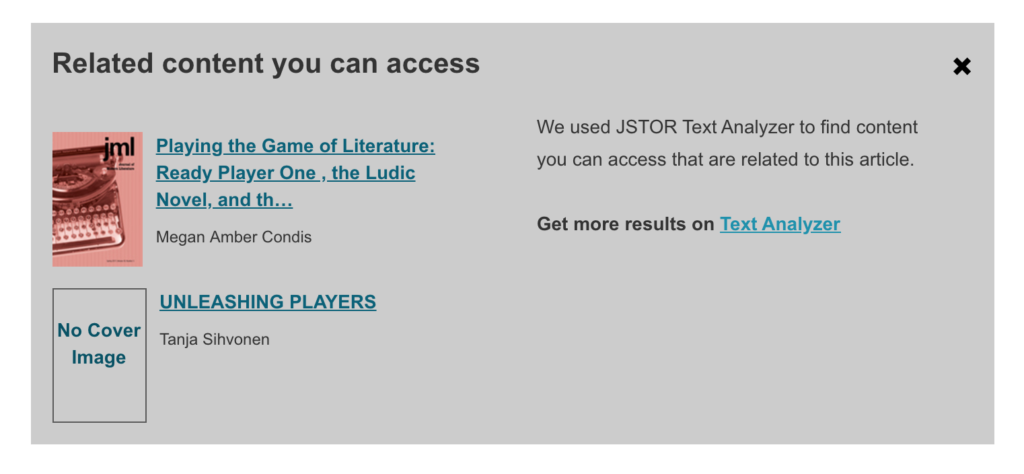
JSTOR, and some other publishers of electronic research, have started building text analysis tools into their publishing tools. I came across this at the end of a JSTOR article where there was a link to “Get more results on Text Analyzer” which leads to a beta of the JSTOR labs Text Analyzer environment.
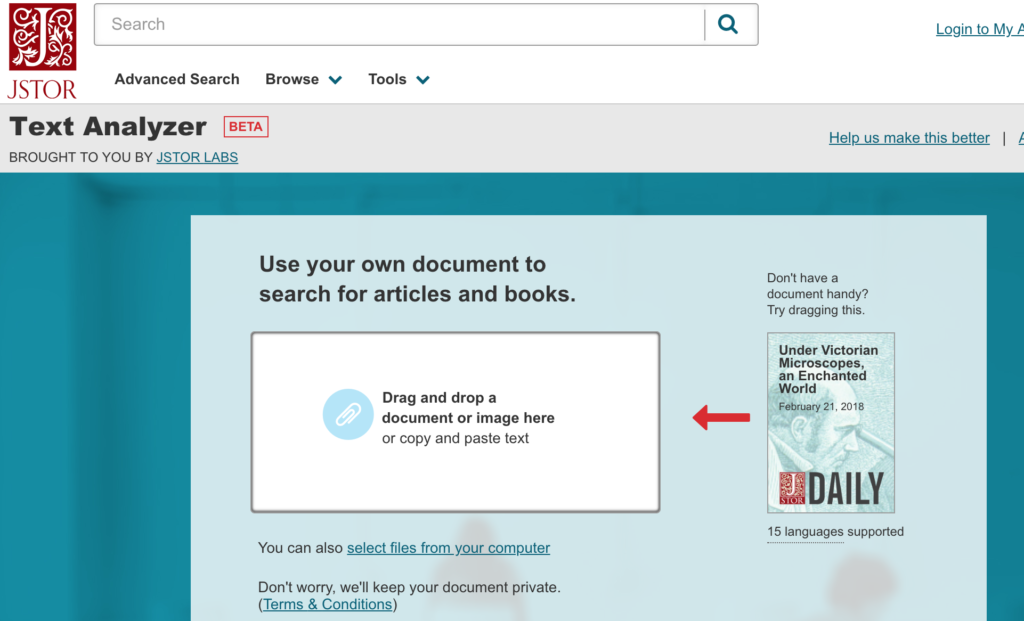
This analyzer environment provides simple an analytical tools for surveying an issue of a journal or article. The emphasis is on extracting keywords and entities so that one can figure out if an article or journal is useful. One can use this to find other similar things.
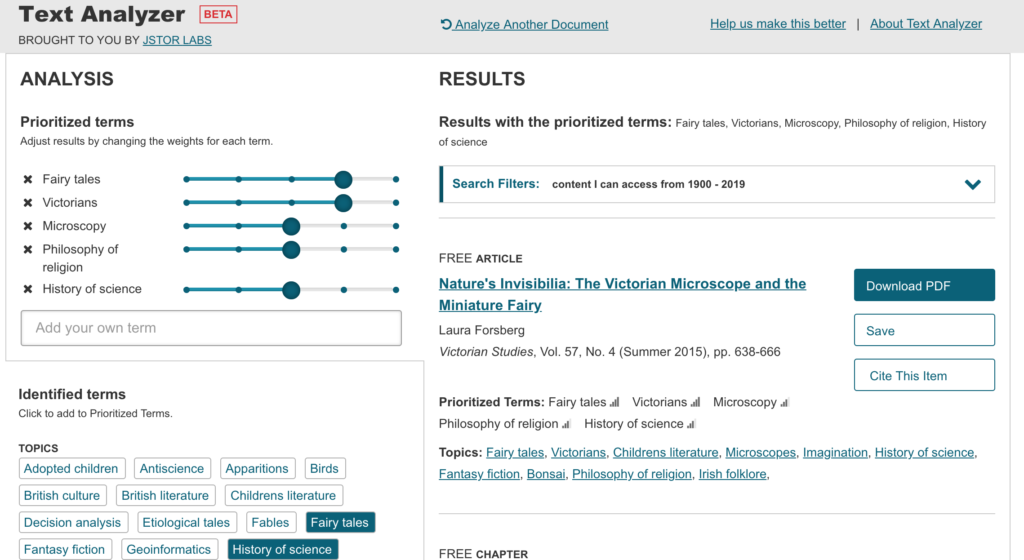
What intrigues me is this embedding of tools into reading environments which is different from the standard separate data and tools model. I wonder how we could instrument Voyant so that it could be more easily embedded in other environments.
Peter Robinson, “Textual Communities: A Platform for Collaborative Scholarship on Manuscript Heritages”
Peter Robinson gave a talk on “Textual Communities: A Platform for Collaborative Scholarship on Manuscript Heritages” as part of the Singhmar Guest Speaker Program | Faculty of Arts.
He started by talking about whether textual traditions had any relationship to the material world. How do texts relate to each other?
Today stemata as visualizations are models that go beyond the manuscripts themselves to propose evolutionary hypotheses in visual form.
He then showed what he is doing with the Canterbury Tales Project and then talked about the challenges adapting the time-consuming transcription process to other manuscripts. There are lots of different transcription systems, but few that handle collation. There is also the problem of costs and involving a distributed network of people.
He then defined text:
A text is an act of (human) communication that is inscribed in a document.
I wondered how he would deal with Allen Renear’s argument that there are Real Abstract Objects which, like Platonic Forms are real, but have no material instance. When we talk, for example, of “hamlet” we aren’t talking about a particular instance, but an abstract object. Likewise with things like “justice”, “history,” and “love.” Peter responded that the work doesn’t exist except as its instances.
He also mentioned that this is why stand-off markup doesn’t work because texts aren’t a set of linear objects. It is better to represent it as a tree of leaves.
So, he launched Textual Communities – https://textualcommunities.org/
This is a distributed editing system that also has collation.
Burrows and Antonia Archives: Centre For 21st Century Humanities
What happens to old digital humanities projects? Most vanish without a trace. Some get archived like the work of John Burrows and others at the Centre For Literary And Linguistic Computing (CLLC). Dr. Alexis Antonia kept an archive of CLLC materials which is now available from the Centre For 21st Century Humanities.
